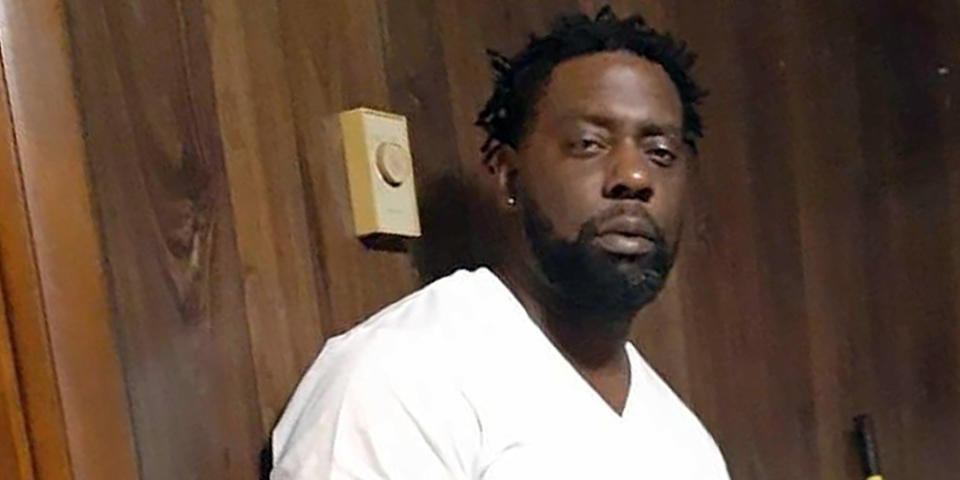Two deputies return to work, one resigns after Andrew Brown Jr. shooting
Two North Carolina deputies who fired shots at Andrew Brown Jr. have returned to work, while a third plans to resign, authorities said Friday.
Pasquotank County deputies Daniel Meads, Robert Morgan and Aaron Lewellyn were placed on administrative leave after the April 21 death of Brown, who was fatally shot while behind the wheel of his car as deputies attempted to serve a warrant for his arrest on felony drug charges.
The 42-year-old Black man's death has sparked protests in the state and calls for justice.
The Pasquotank County Sheriff's Office said that Meads returned to work on Tuesday and Morgan came back on Wednesday. Lewellyn said he will resign effective June 30 and will use accrued leave until then, the office said in a Facebook statement.
Sheriff Tommy Wooten said that a total of 10 deputies were involved in serving the warrant at Brown's Elizabeth City home. Three left the force, but their resignations were not related to the shooting, a sheriff spokesperson said.

Four other deputies involved returned to active duty in late April after they were briefly put on leave.
“After reviewing the preliminary conclusions of the independent investigators conducting the internal review, and after carefully examining the body camera footage of the incident with my own staff, it’s obvious that four of the deputies never fired their weapons and deserve to be reinstated to active duty," Wooten said at the time.
None of the deputies involved will be charged. Prosecutors said last month that the deputies were justified in fatally shooting Brown.
"No officers will be criminally charged. The officers' actions were consistent with their training and fully supported under law," District Attorney Andrew Womble said.
He added that authorities had wanted to arrest Brown the night before the shooting but he did not return home. When deputies later confronted Brown in his car, he used the vehicle as a deadly weapon, he said.
"The deputies faced both actual and apparent danger as perceived by them on the scene," Womble said. "This apparent threat was reinforced by Brown's dangerous and felonious use of a deadly weapon. As tragic as this incident is with the loss of life, the deputies on scene were nonetheless justified in defending themselves from death or great bodily injury."
The DA went on to cite case law that grants police wide discretion in using deadly force against a fleeing suspect.
"Once a threat is perceived … and the officers fire the first shot, if the first shot is justified, the last shot is justified until the threat is extinguished," Womble said.
Brown's family refuted Womble's comments, saying that he did nothing but "whitewash" the facts of the case.
"Andrew Brown Jr., his grieving family, and this community deserve answers," according to a family statement last month.

